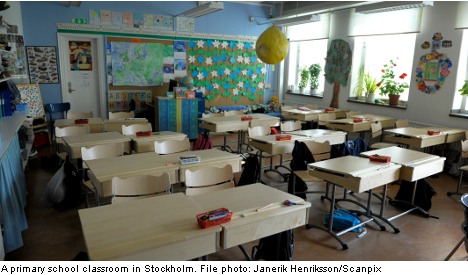“The problem of increased segregation among the population has begun to appear and this poses significant risks over time,” said Henry M. Levin at the Teachers College at Columbia University in New York to Sveriges Radio (SR).
According to Levin, who has studied the Swedish school system in an international perspective since the reforms of the 1990s, the process is a slow one but has the effect of fragmenting society.
In a soon to be published study by researchers at Stockholm and Uppsala universities shows that middle-class parents often decline to consider schools with a more diverse student body.
The researchers conclude from the report, which is based on interviews with 5,000 parents, that this selection process is a contributing factor to creating increasing ethnic and class divisions between schools.
Sweden’s free school system was introduced in 1992 and the country’s state-financed schooling system has developed into one of the most market-orientated and competitive worldwide.
The system has recently been adopted in the UK and is similar to the charter schools system in the US, with funding tied to an individual student.
Somewhat uniquely, the Swedish system also allows for profits to be made by the firms operating schools. This feature of the system remains controversial in Sweden.
Peter Vinthagen Simpson



 Please whitelist us to continue reading.
Please whitelist us to continue reading.
Member comments